how to prepare for baby goats
Kidding season is a fun time on any homestead, but sometimes issues can come up. This article on how to prepare for baby goats will have you prepared for anything just in case there is a problem.
Goat Breeding and goat kidding help to ensure you have a herd of healthy goats.
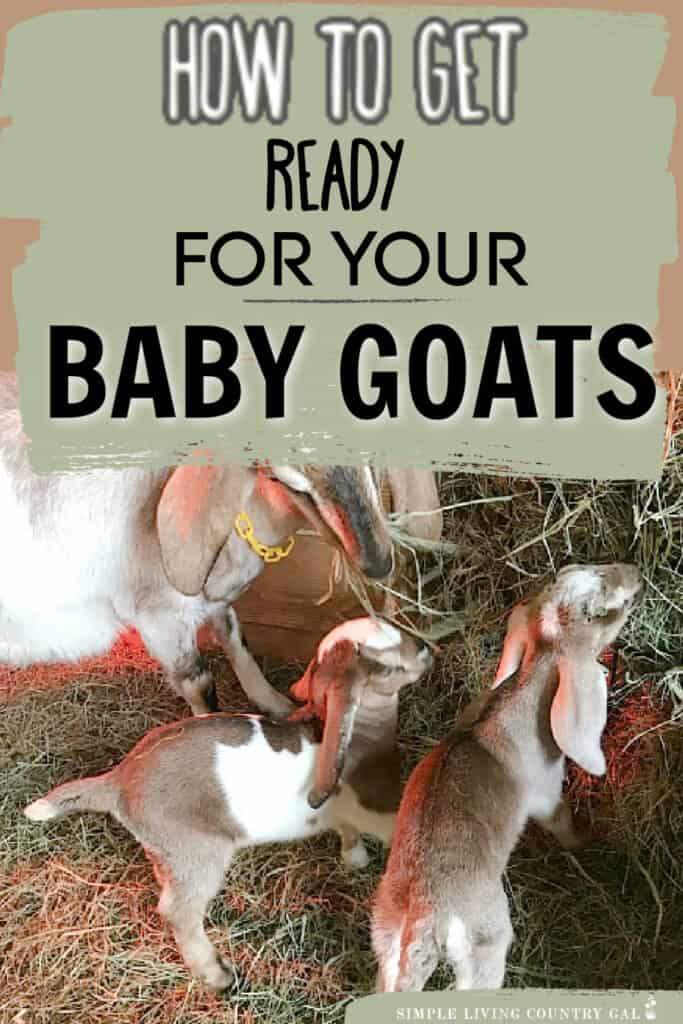
Every year, homesteaders look forward eagerly to the arrival of baby goats on their farm. Whether you’re a seasoned goat owner or a first-timer, preparing for the arrival of your cute kids is crucial to ensure they have the healthiest start possible.
To help, we will cover some of the essential things you need to have ready before baby goats arrive, such as feed requirements, housing, worm prevention, protection from the herd, toys to fight boredom and pasture tips.
It’s true that 99.9% of all goat kiddings go without any issues, however, there may still be a few times when you may need to intervene in the kidding. Every year it seems we have to assist with goat kiddings and we find that having a tote full of all the tools needed helps us to be ready just in case something does come up.
This is called a goat birthing kit and it is an essential part of any homestead and one that you will want to have ready long before kidding season begins.
Read: How to Set Up a Birthing Kit Here
What kind of care should you give to baby goats?
For healthier goat kids, rely on your doe for help. Nature gives does an amazing source of antibodies that goat kids need to have right away. It’s called colostrum, and it is the first thick yellowish milk produced by the doe immediately after birth.
Goat kids should drink from their mother within the first 20-60 minutes of their birth to ensure they get the colostrum needed for a strong start. As long as they do, they will receive the antibodies necessary to fight common diseases that can plague newborn goat kids.
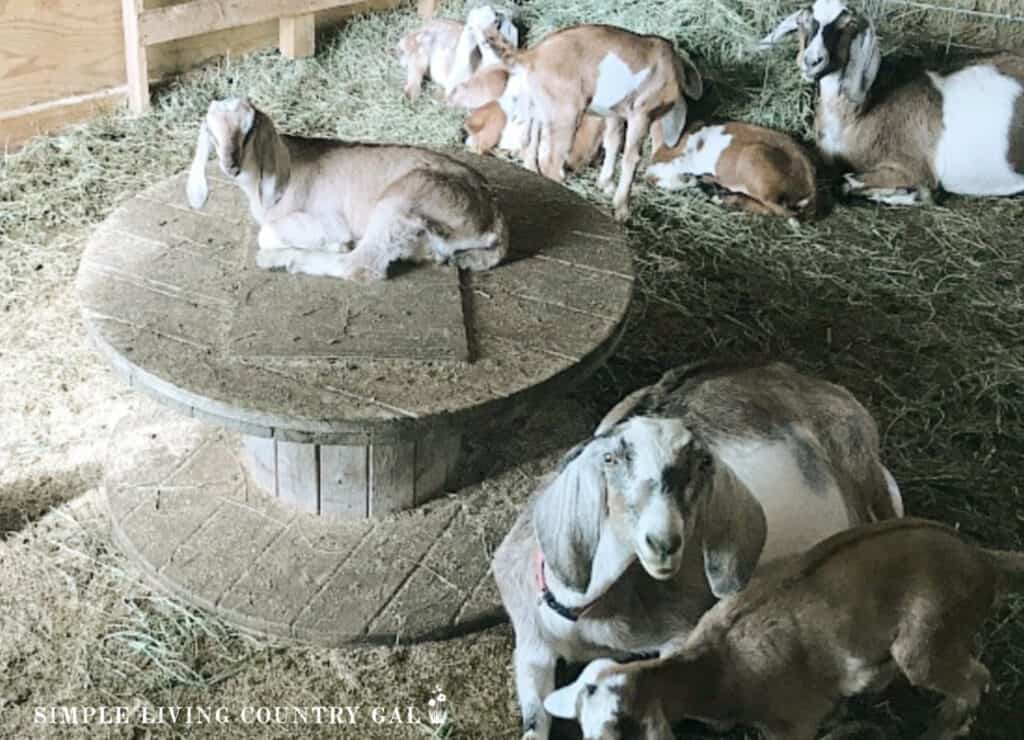
What feed do baby goats need?
Proper nutrition is crucial for the health and growth of baby goats, and the good news is that the mom will have all the food they need. Allow your goat kids to nurse on demand to ensure they are getting enough nutrients.
As your goat kids grow, you can start to offer grain and hay. This usually happens at about 3-4 weeks of age when their rumen is more developed.
Water is also needed, although your goat kids will not drink it in the early days. Just have a small amount nearby in case they want some. Be sure it is clean water by changing it out daily.
Housing for Baby Goats
For the first 2 weeks, you will want to house your goat kids with their mom privately. This will keep the babies safe from older herd members. It also allows time for the mom to bond with her young kids.
READ: How to Set Up a Birthing Pen
If you have the room in your shelter, you can section off a corner giving enough room for mom and kids.
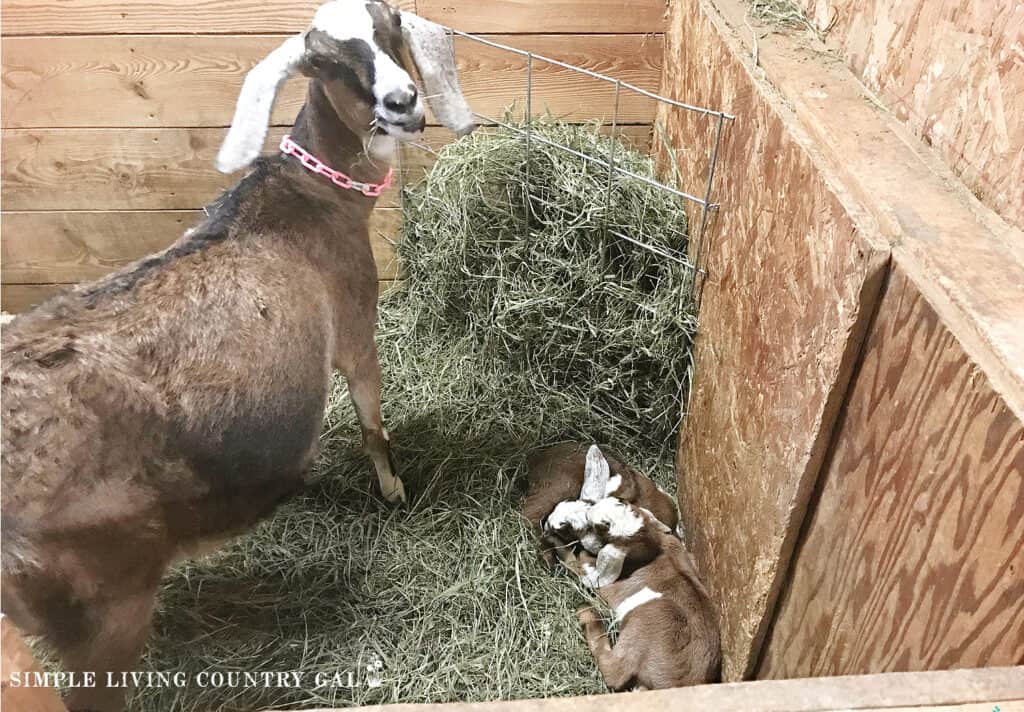
Worm Prevention for baby goats
Goat kids are a lot like our kids, meaning they put anything into their mouths. For this reason, kids can get an overload of worms that can cause serious health problems. Therefore, it is essential to develop a regular deworming schedule early on. Consult with your veterinarian to determine the appropriate medication and dosage required to maintain your goats’ health.
You can also incorporate a natural worming routine with our goat kids. We like to use Land of Havalah herbal wormers and find they work really well at preventing outbreaks.
Protection from the Herd
After 2-3 weeks you can incorporate your goat kids into your herd. We find at this age the kids are able to keep away from the more dominant adults without risking too much injury.
You can also set up a kid area in the main section so the kids have a space that is safe for them to interact with each other without the adults getting in the way.
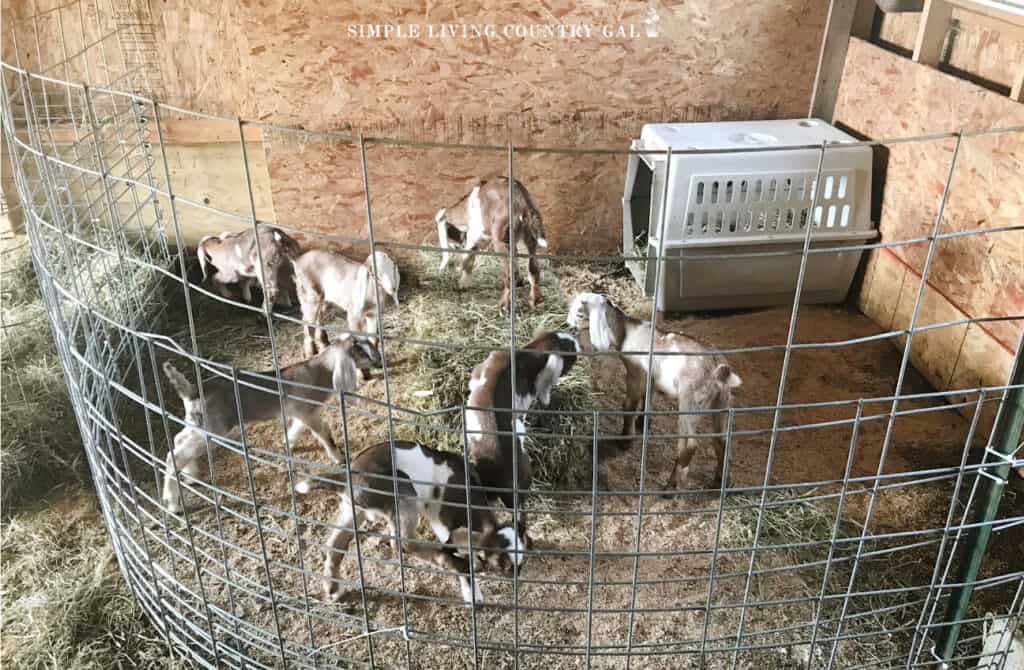
A separate area like this is called a kid pen, and it can also be helpful when feeding baby goats as it allows them to eat without being pushed around by the older members of the herd.
How can you protect baby goats from aggressive adults?
To keep goat kids safe from older herd members, have these things in place.
- A separate feeding area that only your baby goats can access.
- A safe place to sleep that is away from older herd members.
- Their own food source and water source.
- Plenty of room for your goats, so there is not overcrowding.
- Things to climb and play on for kids so they do not pester the older herd members.
Toys to Fight Boredom
Baby goats are naturally curious and active. I am sure you have seen videos of goat kids jumping, running, climbing, and bouncing. You can put a few climbing toys in the pasture, stack up old tires, or put a straw bale in their separate area.
Just enough to give your kids a safe place to play and be mentally stimulated.
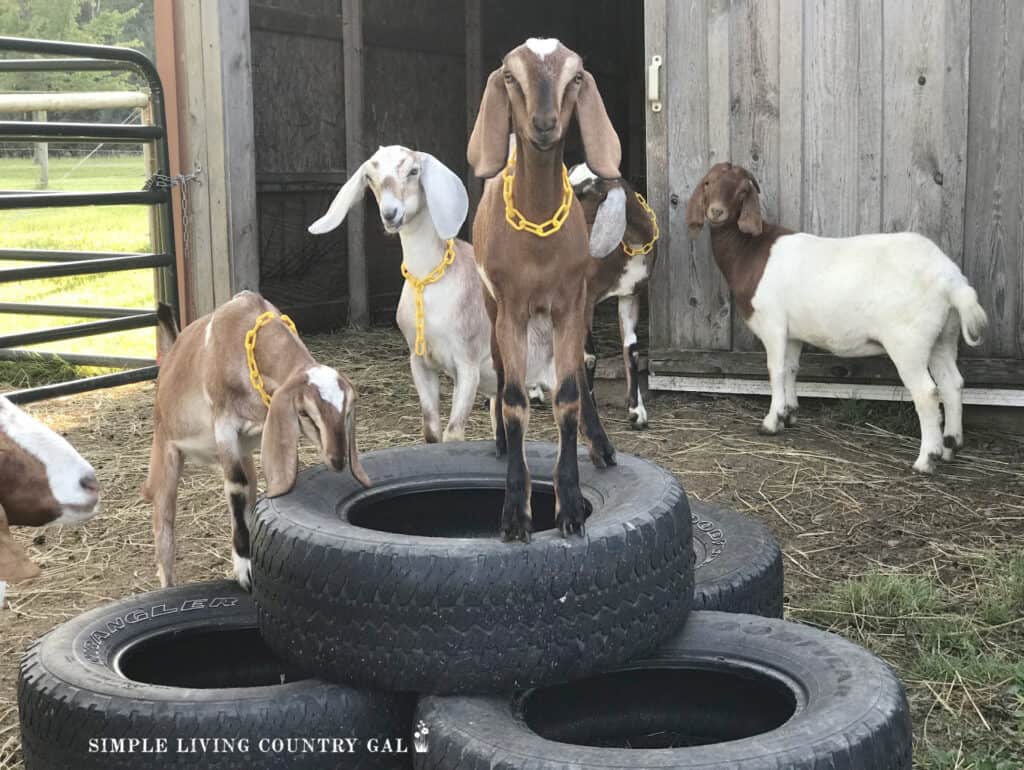
Pasture Tips
If you have a pasture, make sure you put up a fence in place that your goat kids cannot escape from. We like to introduce our young kids to our electric fence when they are 8-12 weeks old. This seems to be a good age to train them on the fence so they respect it going forward.
By providing the proper feed, shelter, and a safe place to graze, baby goats can flourish and become vital members of your homestead. Remember, a healthy start is crucial, so plan ahead and prepare for their arrival.
With care, love, and attention, your baby goats will grow up healthy and happy, providing you with milk, meat, and some joy in your life. Refer to this list on how to prepare for baby goats so you are ready for each kidding season.
More Goat Care Resources:
- How to DIY a Goat Playground
- Turn an Old Shed into a New Goat Barn
- The Key to Great Tasting Goat Milk
